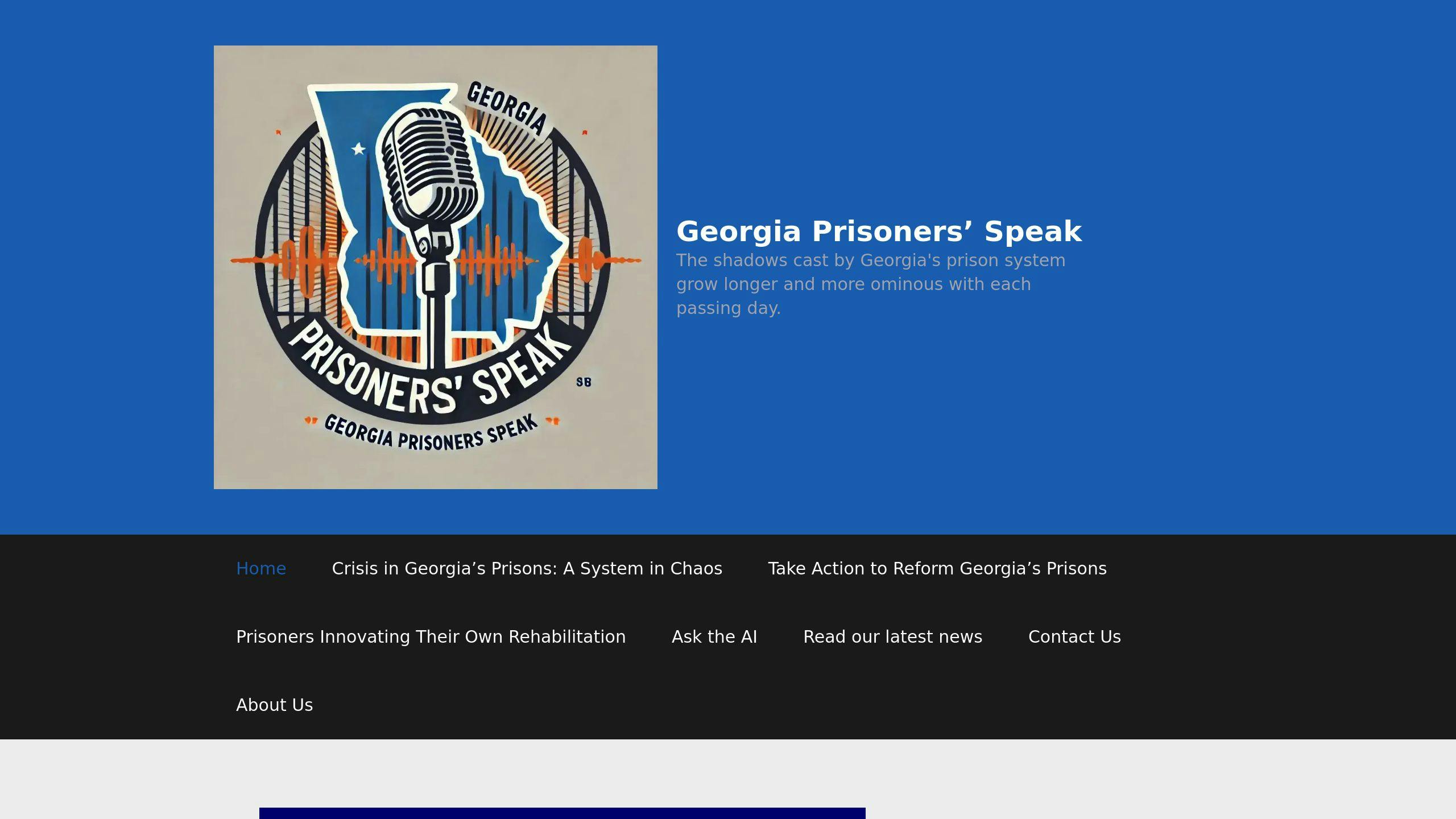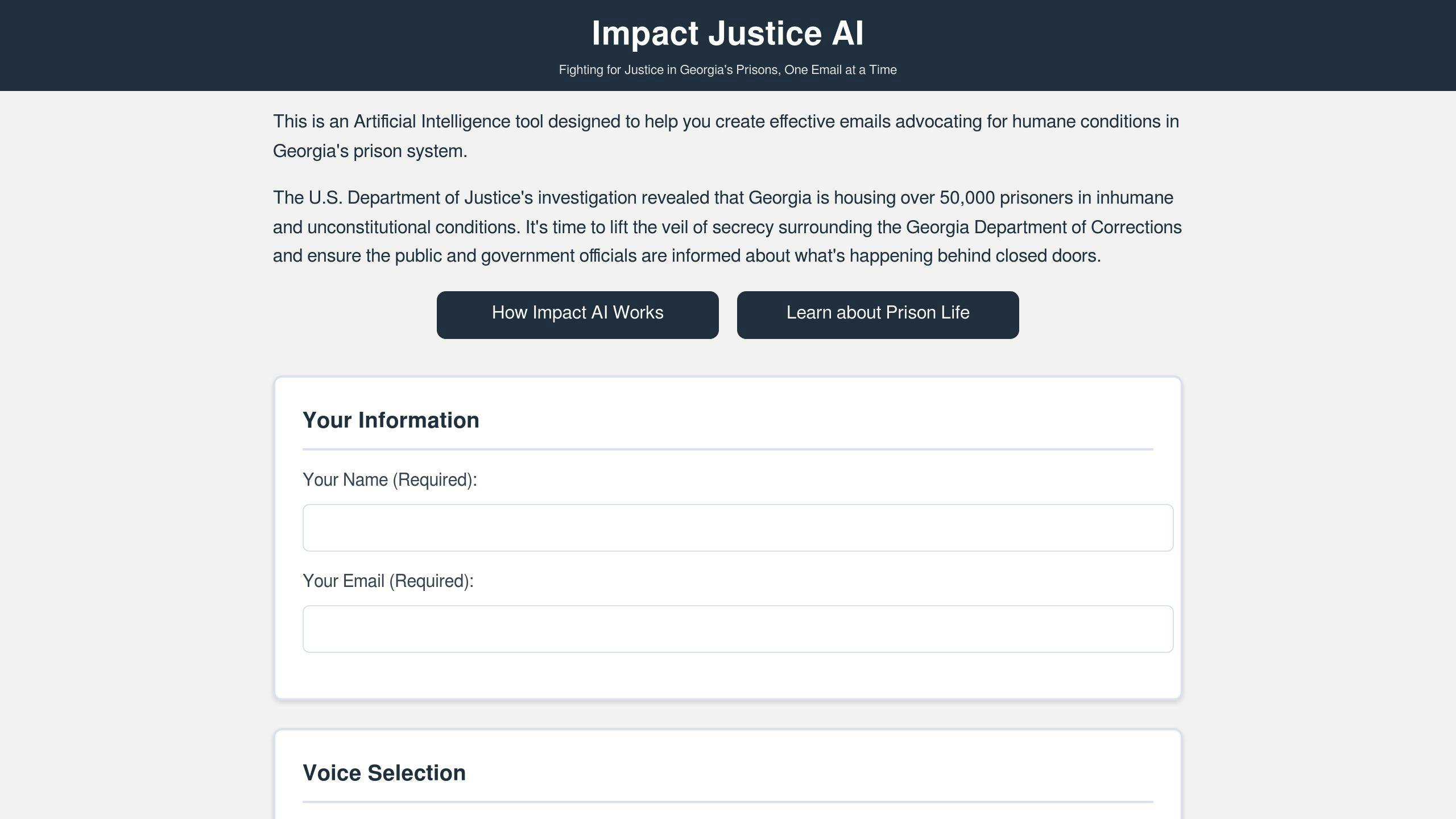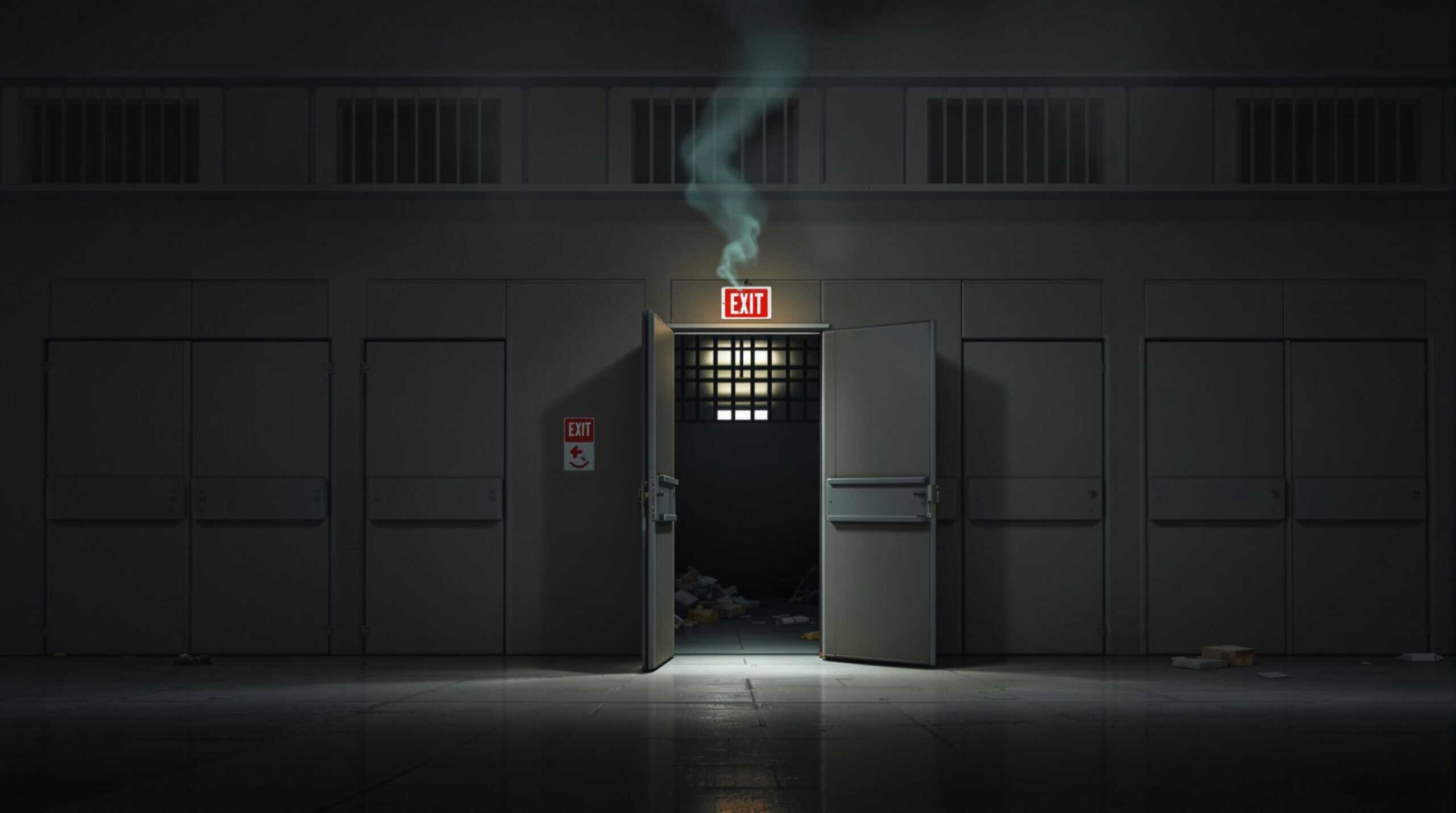Prisoners in Georgia face life-threatening risks due to fire safety violations. Key issues include illegal bolt locks on cell doors, no emergency call buttons, and a lack of evacuation plans. These problems make it nearly impossible for prisoners to escape during emergencies, especially during overnight lockdowns when staff are unavailable.
Key Problems:
- Bolt Locks: Require keys/tools, violating fire safety laws.
- No Emergency Buttons: Prisoners can’t signal for help.
- Slow Emergency Response: Staffing is insufficient during critical times.
- No Evacuation Plans: No clear routes or drills for emergencies.
Solutions:
- Replace bolt locks with NFPA-compliant systems.
- Install emergency call buttons in every cell.
- Develop and regularly test evacuation plans.
Advocacy is critical to push for these changes. Tools like Georgia Prisoners’ Speak (GPS) and ImpactJustice AI can help document violations, organize campaigns, and connect with decision-makers. Together, we can demand safer conditions and hold the system accountable.
Non-Compliance with Fire Safety Laws
Breaking Fire Safety Laws
The Georgia Department of Corrections (GDC) has been found in violation of the NFPA Life Safety Code and Georgia’s O.C.G.A. Title 25 by using bolt locks. These regulations require that emergency exits be accessible at all times and that fire safety measures are strictly followed [1][2]. The issues include blocked emergency exits, the absence of emergency buttons, insufficient staffing during lockdowns, and a lack of evacuation plans. These are not isolated oversights but part of a broader pattern of negligence that puts lives at risk and ignores fundamental human rights.
Impact on Death Rates in Prisons
Using bolt locks alongside other inadequate safety measures creates a deadly environment, especially during low staffing periods and prolonged lockdowns. In emergencies, prisoners are left without any means to escape, and these failures have directly contributed to preventable deaths [3].
Despite clear legal obligations, the GDC continues to rely on these dangerous practices, showing a disregard for safety and human rights. Immediate changes are necessary to address these violations, including the introduction of safer infrastructure and proper emergency procedures, as discussed in the next section.
Related video from YouTube
sbb-itb-7858f51
Solutions to Fix Fire Safety Problems
To tackle the fire safety issues in Georgia prisons, immediate upgrades to infrastructure and reforms to procedures are necessary. Here are some key steps:
Replace Unsafe Bolt Locks
The Georgia Department of Corrections needs to replace hazardous bolt locks with locking systems that meet NFPA standards. These systems should allow for fast evacuations during emergencies while still ensuring facility security. The process involves assessing current locks, planning installations, and training staff to implement the changes over a phased timeline – ideally within a year.
While better locks improve safety, effective emergency communication tools are just as important.
Add Emergency Buttons in Cells
Adding emergency buttons in cells can drastically improve response times during crises. These buttons should connect directly to control centers staffed 24/7 and automatically notify emergency services. For these buttons to be effective, they must:
- Be easy for all inmates to reach
- Include safeguards to prevent misuse
- Operate on backup power to stay functional during outages
Create and Test Evacuation Plans
Clear evacuation plans are vital for protecting lives during emergencies. These plans should outline escape routes, designate assembly points, and define staff roles. Regular drills under different scenarios will help ensure both staff and inmates are prepared to act swiftly and correctly.
Routine inspections by qualified fire safety officers are necessary to ensure compliance and keep systems in working order. While infrastructure upgrades are critical, advocacy and awareness can further push these reforms forward.
Tools to Support Advocacy for Change
Advocacy is crucial for driving infrastructure improvements, especially when it comes to addressing fire safety issues. Two tools stand out for their ability to support reform efforts effectively.
How Georgia Prisoners’ Speak (GPS) Can Help

Georgia Prisoners’ Speak (GPS) sheds light on dangerous fire safety violations and equips advocates with the tools to act. With GPS, you can:
- Document unsafe conditions and violations.
- Share personal accounts from those directly affected.
- Collaborate with others and submit evidence to authorities.
- Access resources for reaching out to officials.
GPS encourages teamwork among advocates, making it easier to push for the removal of illegal bolt locks and the installation of proper emergency systems.
Using ImpactJustice AI for Advocacy

ImpactJustice AI simplifies the process of building advocacy campaigns focused on prison reform. It offers several helpful features:
| Feature | Purpose | Benefit |
|---|---|---|
| Campaign Creation Tools | Develop campaigns for fire safety issues | Organize efforts efficiently |
| Legal Resource Access | Review fire safety laws | Build informed advocacy plans |
| Stakeholder Engagement | Connect with key decision-makers | Open direct lines for reform |
| Progress Tracking | Measure campaign results | Adjust strategies as needed |
By using GPS to gather evidence on issues like bolt locks and missing emergency buttons, and ImpactJustice AI to create organized campaigns, advocates can approach reform with both strong community backing and a strategic plan.
These tools enable advocates to take actionable steps, building the momentum needed to address fire safety risks and protect lives.
Conclusion and Next Steps
Problems and Proposed Fixes
Georgia’s prisons are grappling with serious fire safety issues, including illegal bolt locks, no emergency buttons, and poor evacuation plans. These conditions put lives at risk. To address this, changes like installing proper locking systems, adding emergency buttons to every cell, and creating effective evacuation plans are necessary.
Now, the focus needs to shift toward advocacy to push for these changes.
How You Can Help
Advocacy plays a key role in making these reforms a reality. Here are some ways you can get involved:
| What You Can Do | Why It Matters | How to Get Started |
|---|---|---|
| Report Safety Issues | Helps build a case for change | Use GPS to document violations |
| Contact Officials | Puts pressure on decision-makers | Reach out to those in charge |
| Join Advocacy Groups | Amplifies collective efforts | Partner with GPS and similar organizations |
Your involvement is crucial to holding the system accountable and ensuring safer conditions. These steps provide the tools to challenge harmful practices and demand action.
Head to GPS.press now to join the movement. Together, we can fight for basic safety standards in Georgia’s prisons.
